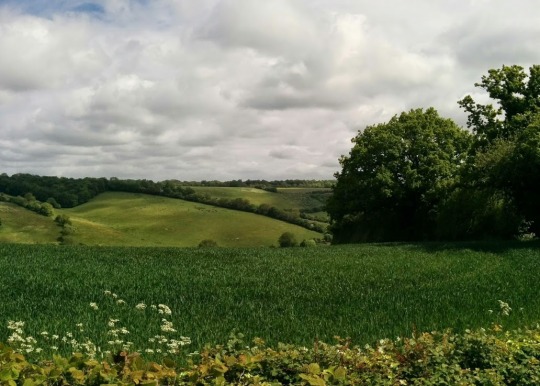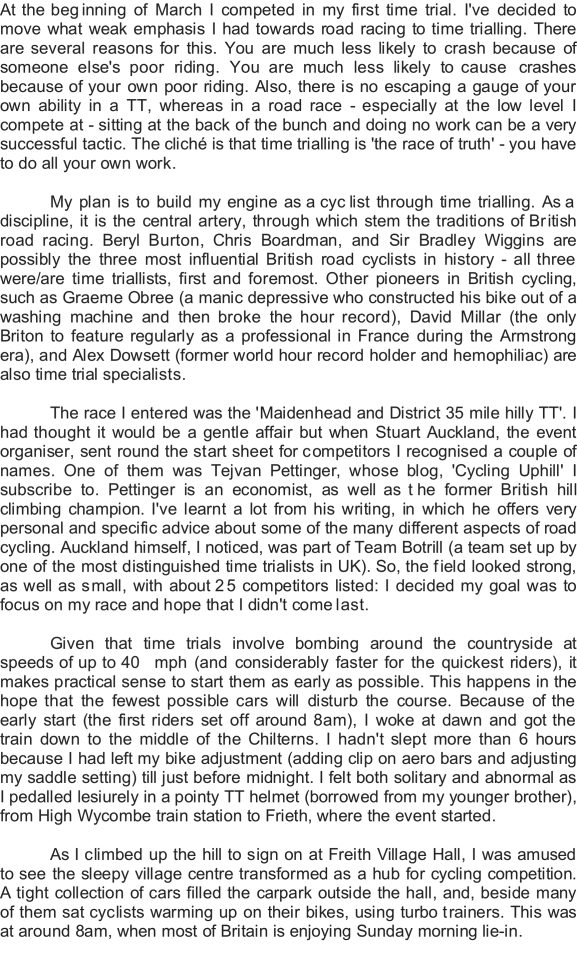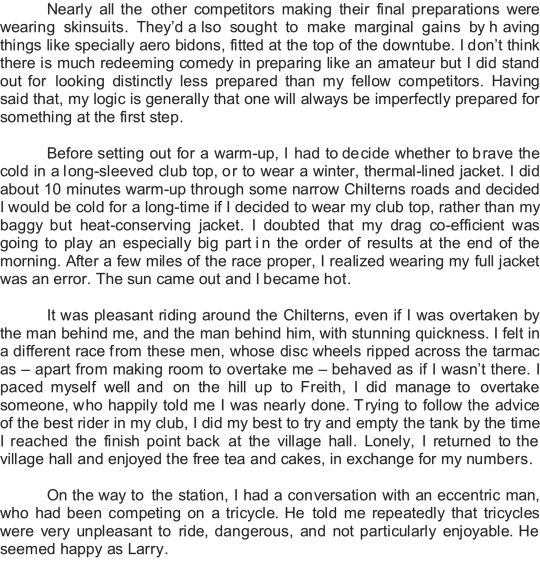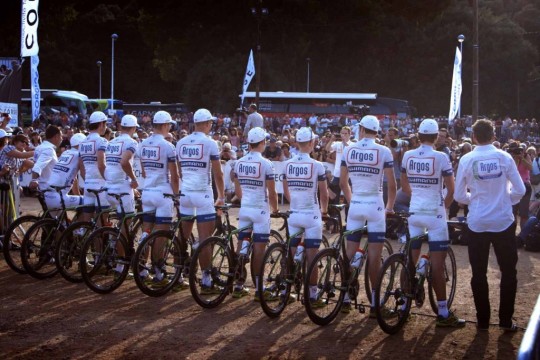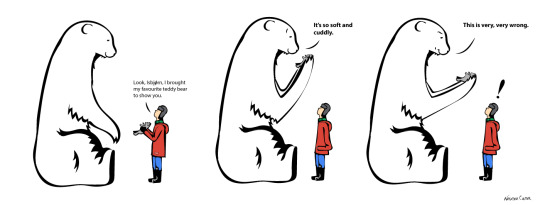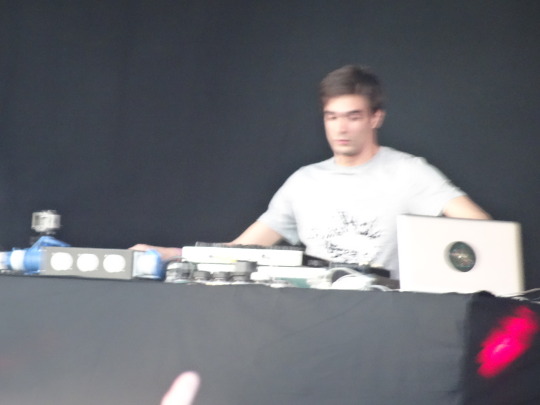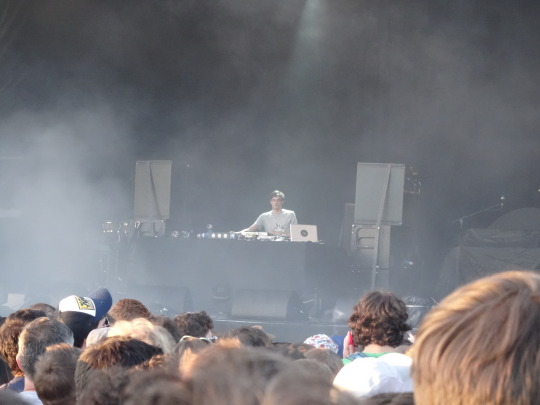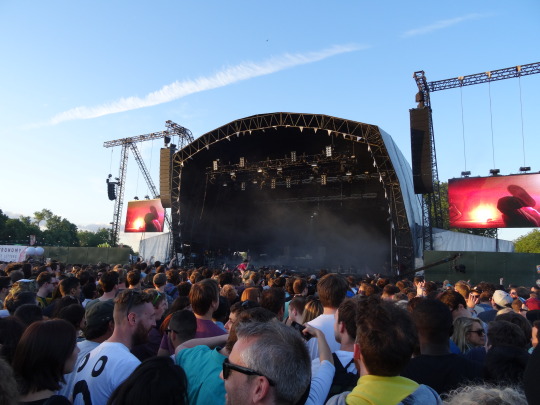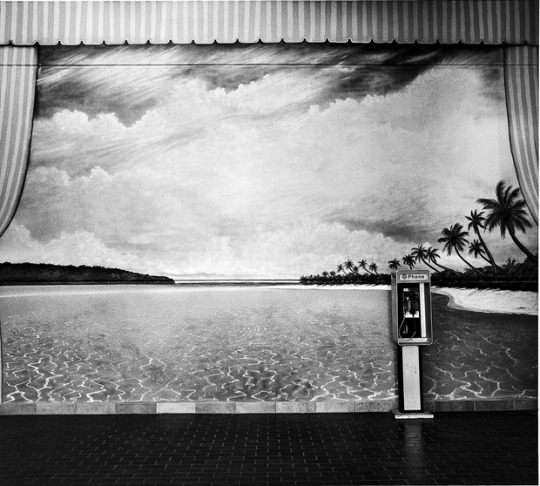Text
2020 hindsight

This has been my best cycling season yet. No longer working in London, I was able to get out on the road more often than I have in the past and I’ve enjoyed the certainties that cycling has offered in a world in which much seems in flux. I got a PB over 25 miles and equalled my PB over 10 miles but, possibly more importantly, I trained regularly for the first time since I started cycling, and the bike took on a new importance for me. It’s become a personal symbol for the worthiness of life’s ups and downs.
Cycling is a rich culture of endless possibilities – one that changes people’s lives. I first got a road bike (part-owned with my two brothers) eight years ago, around the time Bradley Wiggins was riding his way to a TUE-enhanced Tour de France victory. Since getting that bike in 2012, cycling has made me more practical (unless you’re willing to throw money around, learning basic bike mechanics is an essential part of long-term participation in the sport), it’s made me more humble (acknowledging that I’m emphatically mediocre at the sport), more scientific (beginning to get my head round drag coefficient and wattage), and cognisant that cycling is revolutionary. A recent Dutch documentary - Why We Cycle – makes grand claims for the role of the bike in Dutch society, including a claim that in the Netherlands (where bikes outnumber people), children are happier than any other nation in the world because of the liberty afforded by a bike-friendly infrastructure. Who knows? But it’s a credible claim that cycling affords children greater liberties and therefore contentment.
Coming from long distance running, cycling is a funny sport. There is a whole load of ego that seems to come with placing one’s arse on a bike saddle. Cyclists are often people who have come from other sports where they’ve not excelled. The training to performance output in cycling is high; by that I mean – train hard, invest mental energy in it, and the chances are you’ll improve significantly on the bike. The take-it-or-leave-it nature of competition in cycling means it’s a great place to curate a damaged ego. At an amateur level, I’m often amused by the scowling Strava entries of cyclists struggling with their natural lot (one recent TT appraisal from a former clubmate who was just outside his PB – ‘Dreadful. Must do better’, or the member of Reading CC who posts rides led by others with titles such as, ‘Tring and tedium’ or ‘terrible choice of route. Head wind all ride’). Does cycling have a unique claim on mature sports-based self-delusion? Additionally, the marginal role of cycling among professional sports means cultish, often unquestioning worship of its stars. Even successful cyclists nationally are often damp, uninspiring people, tending to fractured sense of selves (David Millar and Bradley Wiggins are obvious candidates). But the nature of having a marginalised (doping-scandalised) professional side to the sport, means where anomalies exist, they can be inspirational.
Among the pros, my all-time cycling hero is Nicole Cooke. She embodies much of what I love about the sport and reading her book – The Breakaway – taught me a lot and created a mould for how I wanted to go about cycling. Her connection of cycling with family. Her extraordinary and precocious attention to detail. Her zero tolerance of the cheats destroying the sport, as well as her obvious actions to distance herself from anyone doping-related. Her zero fucks given about offending male chauvinists. And her intelligence both in and outside of cycling. As a young teenager her level of professionalism was far in advance of the majority of male riders doing grand tours. Like many true outliers, she’s never really been embraced by her (now former) profession in the way that she deserves.
At an amateur level (albeit very much on the elite side of it) Tejvan Pettinger is the other beacon in my cycling life. Pettinger – a former national hill climbing champion who writes a painstakingly researched blog, Cycling Uphill – gives precious advice on how to train and how to keep your bike. Whenever I want a start point on something cycling-related (how to do interval training, the best rain jacket, 16mm fabric rim tape for the inside of my city-bike wheel) I look at Tejvan’s blog. He’s local to me (based in Oxford) and I enjoy the local community element to his writing; whilst I’ll never come close to what he’s achieved on the bike, I feel some spiritual kinship with him and his cherishing of the Corinthian ideal.
My understanding of this Corinthian ideal is that it celebrates sport as a means of a kind of self-fulfilment. But it’s also associated with a kind of wilful amateurism that is criticised by Clive Woodward as cause of delayed development in British sports at a professional level. When I celebrate Corinthian ideals, I’m certainly not endorsing the lazy, self-indulgent view of sports as something resting on natural, untrained talent - the view that Woodward criticises (see his book, Winning!). For me, the Corinthian spirit is kind of the inverse of what Woodward is criticising: it’s the pursuit of professional levels of training by those who are not paid to compete. With that dedication comes deep respect for others’ achievements. In a world where professional sport is basically an extension of corporatized entertainment, Corinthian values – or, at least, the amateur ideal – are pretty much the vessel for all that’s vibrant about sport. In pro cycling, even the appearance of a genuine hero like Tao Geoghan Hart is undermined by the large ugly grin of Dave Brailsford at his side. I’m more interested in watching the performances at a local level, where people with day jobs can turn up to local TTs and do over 30 miles an hour for 25 miles.
At time trials, road races, hill climbs, etc. you basically find the people who keep the sport alive. They might be watching, competing, writing about it, or organising it. The last of these gets the least respect but is also the most integral. Competition would simply not exist without organisation. The team at my club, Reading, organised about 2 months’ worth of weekly TTs during a pandemic. We used the same course – an intelligent practical step to minimise chaos but the organisation was impeccable. For the first week, payments were made with a contactless machine on the day but this quickly changed to pre-event payment online. A full recce of the course was put up on YouTube to show newcomers the way and we even got a video highlights package one week. I don’t think people appreciate how much these guys do. They basically make the amateur sport possible.
I’m not claiming that cycling is the greatest sport. I think it’s rather like being into poetry. The environment is not large, but the dedication is of a high level. Its denizens inspire or infuriate. What you see is hardly any of it. You stick with it till it breaks you, then stick with it till it fixes you.
0 notes
Photo
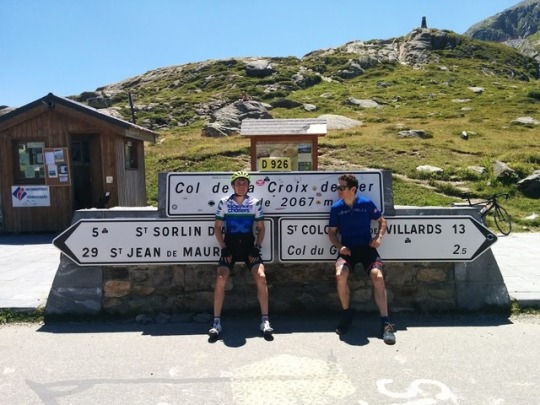
This Friday next week, I’ll be cycling with these two across the Pyrenees. Just me, Johnnie (left), Col Crusher (right), and 40 brown bears.
0 notes
Photo
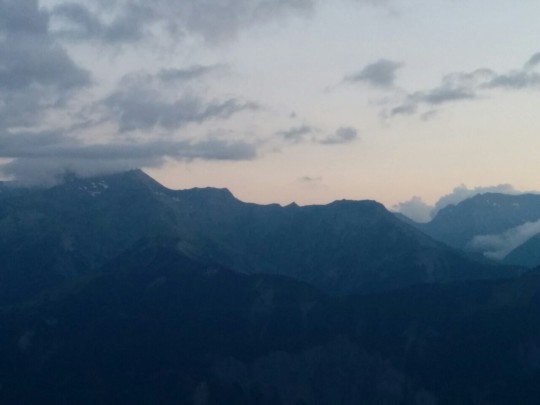
Experiences of the 15-16 cycling season Cycling is a beautiful, increasingly popular, but confused culture. In London – my town – cyclists are everywhere. This morning, on my cycle to work, I passed a cycle café in Borough. On the window front, someone had stencilled: ‘I cycle, therefore I am.’ I pondered the line as I rode on. A side of it taps into the idea that cycling is an exclusive club for young men, often bearded, working in a creative pursuit, slightly lost to any broader direction than where his bike takes him. For these guys cycling and the surrounding atmosphere (vintage steel frames, foreign terminology for bike paraphanelia, excluding language, thin bodies, codified rules) form a raison d'etre. Cycling is a land where snobbery is a common form of weed. But there is another side of Britain’s cycling culture that I enjoy, which is less tolerant of that kind of bullshit. Time trials are somewhere near the centre of British cycling culture. The TT strikes me, not only as one of the richest veins of British cycling culture, but as one of the most attractive features of British sport altogether. Although time trials are contested as lone rides by each competitor (tandems and 2-ups are exceptions to this rule), there is a real community at these events. To do a time trial, in itself, shows an unusual commitment to sport. Generally, you have to wake up before or soon after dawn, in order to drive an hour or more to a random village in the countryside. When you are there, you just do a stretch of unpleasant exercise, where you push yourself as close as possible to the limit of your physical capacity. But I like this community of riders because it contains some excellent athletes and some mediocre athletes, but mostly people happy to share their experiences with you once the race is over. The atmosphere of these places is generally purged of ego. It’s a long way from the click-click-click of a Dura-Ace chainset, pedalled by an irate Londoner on his way west on a Saturday morning. In the end, however, after forward planning, I did only four time-trials. After the hilly 25 in Maidenhead, I then did poorly in West London Combined 25 starting from Great Missenden. I had prepared for the event casually and I got my bike set up badly wrong, to the extent that I would have been much better off cycling on the drops of my handlebars. Also, although I had bought a Kask Bambino helmet and was using the visor, it got all steamed up and then fell onto the road. My approach to my final time was so unconcerned that I hardly needed to think before turning back to collect it and resuming my race. The next time trial was another 25 miles – a hilly stretch somewhere near Windsor, as part of an annual interlinking event, organised by London West District. Twickenham – my club – was helping host the event, which was a handicap. My preparation was much better than it had been for the previous event because I was able to rely on the superior organisational skills of a friend, who was driving up to the event and who made sure we left in good time. I went well but without a warm-up, I found it difficult to really push myself to the limits. Still, my legs took me as fast as I was capable of and I finished in a time of 1:11, which I was pleased with. As meaningless as position in a handicap might be, I came third. A lot of the best riders from our club were at the interclub event. I was interested to talk to a man I’d never met before, who I think had done sub-1 hour on the course. We got chatting in the pub and he told me he'd been training to do the entire Tour de France route, within the same timeframe as the professionals. For an amateur cyclist, with family and a full-time job, it was an impressive commitment. In cycling you set your own goals. One of the enjoyable aspects of the sport is learning just how heterogeneous people's targets can be. Mine are often set by my younger brother, who is more adventurous than I am and knows more about the form of competitive cycling in the UK and abroad. Last year, he arranged a successful trip to cycle the Amstel Gold and for this year, he flagged the Flanders sportive. For the summer, we decided to compete in the Alp d’Huez duathlon (a preamble to a competitive triathlon that occurs at the end of the same week). Flanders was a bit of an eye-opener. We were cycling the sportive together with a friend of mine called Simon and two friends of his. Simon does no competition and pretty much trains by himself but has good style on the bike, and natural talent. His friend Ondi was an enthusiast of the event, strong on the cobbles, and a great guy to do a historic sportive with. With the real excitement of the professional race the next day, he spent a lot time talking about ‘Fabian’ Cancellara with the wistful joy of a spurned but grateful former lover. The last member of the 5 was a teacher colleague of Simon’s, called Richard. Richard stood out for his maturity (not only because he was a bit older than the rest of us) and the seriousness of his approach to the sportive. He was the only guy with the sense to change to a compact cassette before the event. My younger brother’s organisational skills were the other side of the spectrum from Richard’s. In spite of weeks of forewarnings that he needed to buy some 25mm width tyres to cope with the cobbles, he punctured before we’d even got out of Brussels-Midi station the day before the sportive. Irritated by this and with momentum on my side, I encouraged him to visit Decathlon in Bruges to prepare for the following morning. I also had to pay for him to have his malfunctioning brake cables replaced, so reluctant was he to part ways with a few euros. The ride itself was easy-going for the first 100k. Richard, the least experienced rider in our group, decided to treat these easy miles as a kind of 100k TT. He kept charging to the front of any bunch we were riding with, and therefore squandering energy, as well as towing along packs of relieved riders in his wake. By the time we reached the first berg - in Ondi's words, the start of some of the toughest climbs you can ever cycle - Richard looked spent. He spent the next few cobbled climbs slipping behind our group. Ondi and John decided to move on ahead, while Simon and I cycled on with Richard. Although a sportive is not competitive, it is frustrating to have to wait around at every hill top, so I can sympathise with why John and Ondi carries on. However, Si, Rich and I spent the rest of the ride together and I thoroughly enjoyed the enthusiasm and camaraderie we shared through each stretch of cobbles. I will remember the grey, uninviting horizons of my first Ronde van Vlaanderen. A few months later, John and I were tackling another celebrated cycle route as part of the Alp d'huez duathlon. To enter, we had booked our tickets long before the event, which involved getting a doctor's certificate of good health to show the organisers. But lax planning elsewhere meant that we ended up booking accommodation and travel only a couple of weeks before the event. This would have been fine, apart from we journeyed from Grenoble to Alp d'huez the day before our competition, with huge bags, on our bicycles. I found the climbing up to our base arduous. John, who had begun his journey from Grenoble several hours earlier than me, ended up climbing the first few kilometres of Alp d'huez with his massive bag bouncing on his back and without even realising what climb he was doing. He later told me, 'I was thinking this is really not a very nice climb.' I went through a gentler, but still nasty experience, climbing the easier face of the mountain - le Pas de la Confession. Not really knowing quite where I was going, I found the whole experience depressing and dogged by the usual mild to disturbing demons that characterise my cycling long periods alone. However, it felt like an achievement to look down across me and acknowledge the muddy looking road snaking up Alp d'huez like impressive layers of rice fields, shelved lazily on top of one another. In the event itself, the next day, I ran very slowly to conserve energy for cycling up the mountain. When I got on the bike, I was in good condition and overtook a lot of competitors. I just tried to keep within myself, rather than go off like a virgin boy. The road consumed the mountain face, and I kept an eye on which numbers were displayed on the placards identifying each hairpin with a famous victor. The Alp lasts just over 12 kilometres and finishes at 1200 feet. I have fond memories of the support up the climb, one lady telling me with concern, simply, 'le virage!' (which I imagined meant, 'courage' but actually means, 'hairpin' - quite a funny thing to shout at someone climbing a mountain's worth of them). I also enjoyed the various offerings of a 'douche' (Vittel water bottles poured over one by young men), which I accepted, smiling. The short run after the climb was a bit afterthought, although it didn't feel like that at the time. Sprinting home, I finished 73rd. John, a fair way ahead of me, was the first Brit home and 24th, overall. My time up the Alp was 1:09, which I was pleased with. I think it helped watching watching a GCN profile of the hill the evening before the event because the first part is steeper than the rest of it and it's important to go steady to begin with. The next day we did rode the Alp again, and I was not much quicker than a snail up it. Apart from ascents up the Alp to get to our chalet, the only other climb we did was Col du Sabot. This was a different experience to climbing alp d'huez. John and I were pretty much the only guys in sight, and much of the lower part of the climb is sheltered by canopies of overhanging branches. The nicely tarmacced road at the bottom soon gives way to a narrow chalky farm path, which prevents this climb from ever being a feature of the professional road circuit. Apparently, it is both longer and steeper than Alp d'huez. Even not racing up it, I could see how it might be considered a harder climb than its more famous neighbour. It is certainly far more Alpine to the senses. Every hundred or so metres you hear slow, tinny, knocks of a clutch of cowbells as the skyward path becomes ringed with cloud vapour. I regret that we didn't do more climbs on our trip but Col du Sabot made a serene change from the intensity of Alp d'huez. When I got home, I had several time trials booked but ended up missing three due to an event being rearranged, and realising that I couldn't take trains to the Chilterns in time for the other two. I did my final time trial of the season last week, driving down from my girlfriend's parents' house in Suffolk at 5:30am. Having a skinsuit and access to a car made the time trial more enjoyable. The skinsuit not only allowed me to slip through the air, it also left me feeling a lot more professional than I would have, had I been wearing a racing jersey and bib shorts. My regret is that I wore a visor on my helmet. It made the last two miles of the course dangerous, since I could hardly see through the plastic for mist. Overall, I was content with my time of 26:35. I hope I can take a fair bit off of that, even just through warming up beforehand. Ultimately, I'm pleased with the season, because I progressed as a cyclist but also kept my desire to cycle in reasonable check. I love cycling but it has to fit around more important aspects of my life. Still, most of my cycling friends manage to fit the sport round their equally busy lives and produce fantastic results. There are few better ways to spend Saturday morning than doing a long ride, split by a coffee stop. For the occasional pomposity in road cycling, road cyclists are still capable of a unique kinship. The greatest pleasure for me this year has been all the riders I've met
1 note
·
View note
Video
youtube
I'm not sure I'd begun puberty when this advert came out but it's stayed in my mind. It's not quite as slick as I remember it but it's a classy commercial.
0 notes
Photo
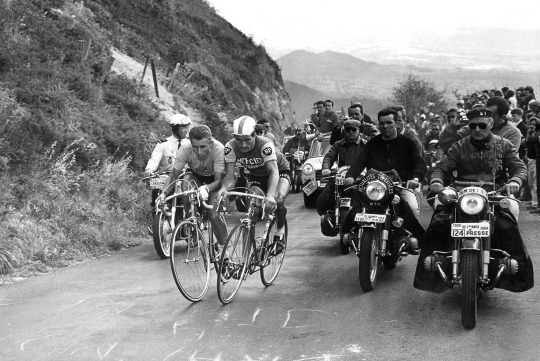
This is Jacques Anquetil and Raymond Poulidor going shoulder to shoulder in the Tour of 1964.
There is footage of the race in this excellent documentary about the Tour, produced by ITV.
0 notes
Video
youtube
This is partly about the queer beauty an empty stadium can have.
0 notes
